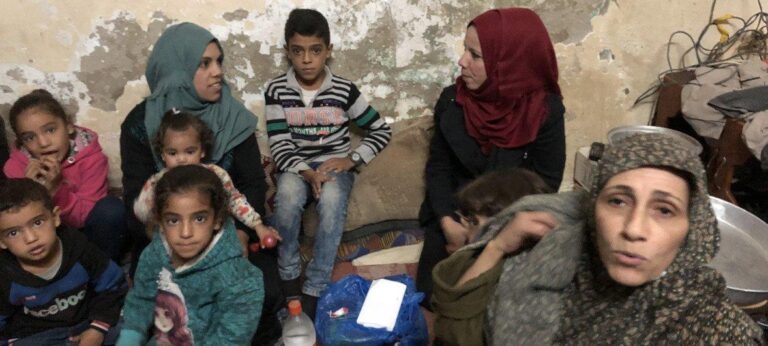The Palestinian issue has long resonated deeply within Spain’s public and political spheres, reflecting a complex blend of historical ties, cultural connections, and contemporary geopolitical concerns. As tensions in the Middle East continue to ignite global debate, Spain finds itself grappling with the implications of the Israeli-Palestinian conflict both domestically and on the international stage. This article explores why the Palestinian cause commands significant attention among Spaniards and their leaders, analyzing the factors driving widespread engagement and the impact on Spain’s foreign policy and public discourse.
Palestinian Issue Resonates Deeply Within Spain’s Public Consciousness
Spain’s historical ties to the Mediterranean region and its long-standing tradition of advocating for human rights have fostered a profound empathy for the Palestinian cause among its citizens and policymakers. Public demonstrations, media coverage, and political discourse repeatedly highlight concerns over humanitarian issues and geopolitical stability. This alignment is further fueled by a significant Spanish Arab and Muslim community, which actively engages in raising awareness and influencing political debates. Additionally, Spain’s experiences with internal regional conflicts have heightened sensitivity to issues of self-determination and sovereignty, making the Palestinian situation resonate strongly on a societal level.
Key factors contributing to Spain’s engagement include:
- Historical affinity: Spain’s colonial past alongside its geographic proximity to North Africa build cultural and political empathy.
- Human Rights Advocacy: Strong civil society movements pushing for international justice and solidarity.
- Political landscape: Spain’s left-wing parties often highlight the Palestinian struggle as part of broader anti-imperialist narratives.
| Aspect | Spain’s Position | ||||||||||||||||||||||||||||||||||
|---|---|---|---|---|---|---|---|---|---|---|---|---|---|---|---|---|---|---|---|---|---|---|---|---|---|---|---|---|---|---|---|---|---|---|---|
| Public Opinion | Majority supports a two-state solution and humanitarian aid | ||||||||||||||||||||||||||||||||||
| Political Parties | Left-leaning parties vocalize support; centrist parties balance diplomacy | ||||||||||||||||||||||||||||||||||
| Government Aid | Consistent humanitarian contributions, cautious diplomatic engagement |
| Aspect | Spain’s Position | ||||||||||||||||||||||||||
|---|---|---|---|---|---|---|---|---|---|---|---|---|---|---|---|---|---|---|---|---|---|---|---|---|---|---|---|
| Public Opinion | Majority supports a two-state solution and humanitarian aid | ||||||||||||||||||||||||||
| Political Parties | Left-leaning parties vocalize support; centrist parties balance diplomacy | ||||||||||||||||||||||||||
| Political Divisions and Consensus on Palestine in Spain’s Parliament
Spain’s parliament showcases a distinctive spectrum of political approaches toward the Palestinian issue, reflecting broader historical, cultural, and diplomatic ties. While left-wing parties typically emphasize human rights and international law, advocating strongly for Palestinian self-determination and condemning Israeli settlement expansions, conservative factions often prioritize Spain’s strategic alliances and Mediterranean stability, calling for balanced diplomacy over outright condemnation. Despite these differences, there is an uncommon level of consensus on the importance of a peaceful resolution and the recognition of Palestinian aspirations within the framework of international legitimacy.
Recommendations for Spain’s Role in Advancing Peace and Human Rights in the Middle EastSpain has a unique opportunity to strengthen its diplomatic influence by actively promoting dialogue and cooperation between all parties involved in the Middle East conflict. Encouraging multilateral negotiations that emphasize mutual recognition and respect for human rights can position Spain as a crucial mediator in the peace process. Leveraging its historical ties and strategic partnerships, Spain should foster initiatives that support the Palestinian people’s right to self-determination while ensuring Israel’s security concerns are acknowledged. This balanced approach can bolster Spain’s reputation as a champion of peace in international forums such as the United Nations and the European Union. Additionally, Spain’s commitment to human rights must be reflected through concrete actions such as increased humanitarian aid, support for democratic institutions, and efforts to combat discrimination and inequality in the region. Public and political recognition of these needs could be supported by promoting cultural and educational exchanges that deepen understanding between Spanish citizens and Middle Eastern communities. The table below outlines key areas where Spain can focus its efforts to advance peace and human rights more effectively:
In ConclusionAs Spain continues to navigate its role within international diplomacy, the Palestinian issue remains a defining factor in both public discourse and political agendas. The deep-rooted historical connections, combined with Spain’s commitment to human rights and Mediterranean stability, ensure that the conflict resonates beyond geopolitical boundaries. Understanding the significance of this issue within Spain offers crucial insights into how domestic perspectives shape foreign policy decisions. As the situation evolves, the ongoing engagement of Spanish society and its leaders will undoubtedly influence broader efforts toward peace and regional cooperation. |




